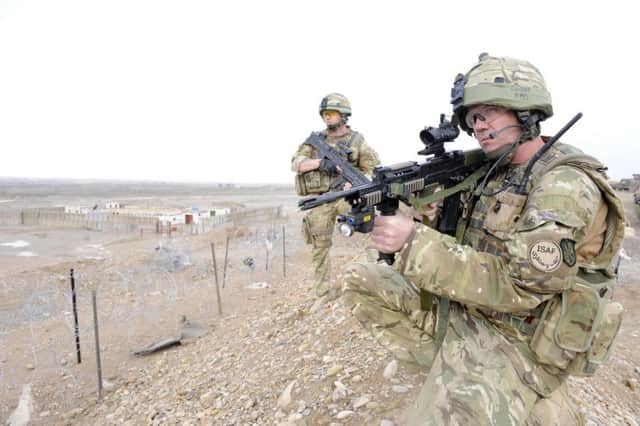Austerity politics '˜contributing to suicides among veterans in Scotland'


Anas Sarwar, Scottish Labour MSP, is backing the Johnston Press investigation launched earlier this week, to reveal the number of suicides by veterans and the publication of annual figures, to help prevent future tragedies involving those suffering mental health conditions, such as post traumatic stress disorder (PTSD).
Mr Sarwar’s call was joined by the Scottish Conservatives, Scottish Liberals and Scottish Greens, as well as shadow Scotland minister Paul Sweeney, Labour MP, whose remit includes defence matters in Scotland.
Advertisement
Hide AdAdvertisement
Hide AdMaurice Corry MSP, Scottish Conservative veterans’ shadow minister, who has served in the Black Watch and the Royal Regiment of Scotland, said that “successive veterans’ ministers had dodged scrutiny on this issue when they should be leading the charge.”
Mr Sarwar said: “Look at the sacrifices men and women in the armed services have made in the defence of our country. We need to go above and beyond to help them.
“We need knowledge of what is happening to them, but we don’t have it because we don’t adequately collect the data.
“We need wraparound support services for them for the mental health crisis developing in our communities. We need to understand if they have an added risk.”
Mr Sarwar added that charities were “doing what the state should be doing to support veterans” and that the Scottish Government needs to increase funding to tackle immediate and long-term issues.
“We can’t have austerity politics causing the loss of life, or giving inadequate service to people who served,” he said.
“Surely as a society we recognise a group of individuals who absolutely need wraparound targeted support for housing, health, jobs and education?
“One of the biggest issues is accessing mental health services. These services are in crisis and it can take weeks or months to see a psychologist or psychiatrist.”
Advertisement
Hide AdAdvertisement
Hide AdCombat Stress, the charity working with veterans with PTSD and other mental health issues, has seen a 143 per cent increase in referrals over the past ten years. In Scotland it had 364 registered veterans in January 2018, with 253 referred to its services for the first time in 2016.
Mr Corry said: “The Scotsman is absolutely right to fight this cause. It’s extremely disappointing that successive veterans’ ministers have dodged scrutiny on this issue when they should be leading the charge. It is time for the SNP government to step up on this matter.”
Mr Sweeney, backing the call for the publication of annual statistics on veteran suicides, said: “It appears to be information the government wants to keep under wraps.
“Over 1000,000 served in traumatic combat zones such as Iraq and Afghanistan. Veterans are a complex group, some with mental health problems they don’t like talking about because it is seen as an admission of weakness.”
Mike Rumbles MSP, Scottish Liberal Democrat veterans’ spokesman, whose own military service included Northern Ireland, said: “The Scottish Government has been callous and short-sighted in its refusal to fully fund Veterans’ First Point [drop-in] centres.
“People who have risked their lives for this country and given years of service must be safe in the knowledge they’ll return home to robust support services, mental and physical.”
Mr Rumbles added: “For as long as the Scottish Government is cutting funding for these lifeline services, any statements of support for our veterans are no more than lip service.”
Alison Johnstone MSP, the Scottish Greens health spokeswoman, supporting the investigation, said: “When poor mental health and PTSD is the result of working in a hugely stressful and traumatic environment, we must acknowledge this can have a lifelong impact going well beyond the period served in our forces. That support must be available as and when required, without fear of stigma.”